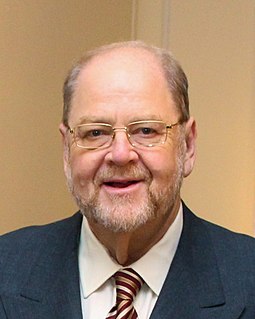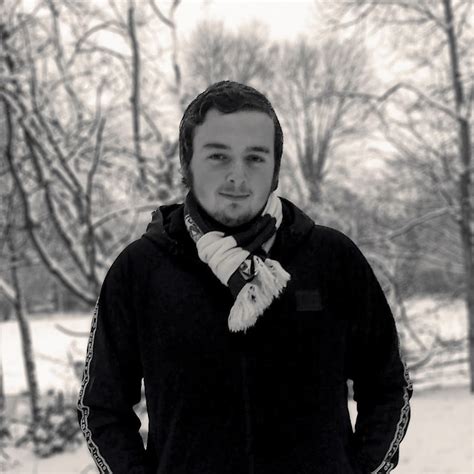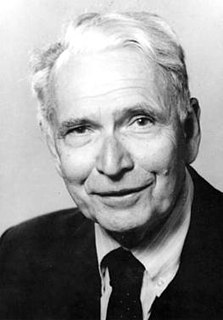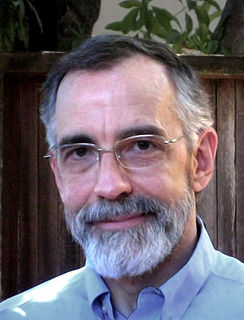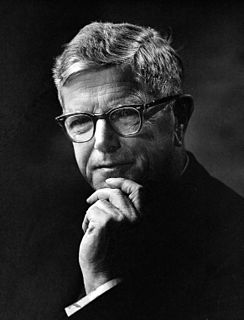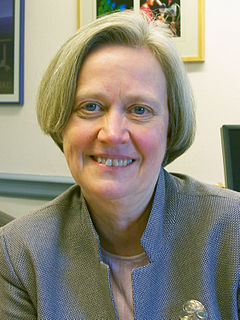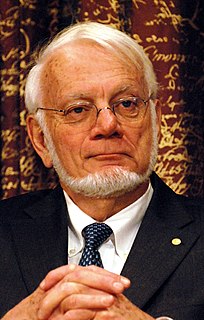Top 940 Molecular Biology Quotes & Sayings
Explore popular Molecular Biology quotes.
Last updated on April 14, 2025.
A paradigm shift is the best a scientist can hope for. Whenever I smell an opportunity like that, I go after it. You have a new discovery that something's working in a different way than you thought. And this is particularly true in molecular and cell biology, which is structural biology and has the least potential for controversy and partisanship among the biological scientists. You're dealing with a concrete object that's either there or not there.
It is now widely realized that nearly all the 'classical' problems of molecular biology have either been solved or will be solved in the next decade. The entry of large numbers of American and other biochemists into the field will ensure that all the chemical details of replication and transcription will be elucidated. Because of this, I have long felt that the future of molecular biology lies in the extension of research to other fields of biology, notably development and the nervous system.
The students of biodiversity, the ones we most need in science today, have an enormous task ahead of molecular biology and the medical scientists. Studying model species is a great idea, but we need to combine that with biodiversity studies and have those properly supported because of the contribution they can make to conservation biology, to agrobiology, to the attainment of a sustainable world.
Molecular biology has shown that even the simplest of all living systems on the earth today, bacterial cells, are exceedingly complex objects. Although the tiniest bacterial cells are incredibly small, weighing less than 10-12 gms, each is in effect a veritable micro-miniaturized factory containing thousands of exquisitely designed pieces of intricate molecular machinery, made up altogether of one hundred thousand million atoms, far more complicated than any machine built by man and absolutely without parallel in the nonliving world.
Molecular evolution is not based on scientific authority. . . . There are assertions that such evolution occurred, but absolutely none are supported by pertinent experiments or calculations. Since no one knows molecular evolution by direct experience, and since there is no authority on which to base claims of knowledge, it can truly be said that . . . the assertion of Darwinian molecular evolution is merely bluster.
In thermodynamics as well as in other branches of molecular physics , the laws of phenomena have to a certain extent been anticipated, and their investigation facilitated, by the aid of hypotheses as to occult molecular structures and motions with which such phenomena are assumed to be connected. The hypothesis which has answered that purpose in the case of thermodynamics, is called that of "molecular vortices," or otherwise, the "centrifugal theory of elasticity.
The big idea we start with is: "How is the genome interpreted, and how are stable decisions that affect gene expression inherited from one cell to the next?" This is one of the most competitive areas of molecular biology at the moment, and the students are reading papers that in some instances were published this past year. As a consequence, one of the most common answers I have to give to their questions is, "We just don't know."
If belief in evolution is a requirement to be a real scientist, it’s interesting to consider a quote from Dr. Marc Kirschner, founding chair of the Department of Systems Biology at Harvard Medical School:
“In fact, over the last 100 years, almost all of biology has proceeded independent of evolution, except evolutionary biology itself. Molecular biology, biochemistry, physiology, have not taken evolution into account at all.
A renaissance in cellular biology has recently revealed the molecular mechanisms by which thoughts and perceptions directly influence gene activity and cell behavior...Energy psychology, through its ability to rapidly identify and reprogram limiting misconceptions, represents the most powerful and effective process to enhance physical and emotional well being.
We know from astronomy that the universe had a beginning, from physics that the future is both open and unpredictable, from geology and paleontology that the whole of life has been a process of change and transformation. From biology we know that our tissues are not impenetrable reservoirs of vital magic, but a stunning matrix of complex wonders, ultimately explicable in terms of biochemistry and molecular biology. With such knowledge we can see, perhaps for the first time, why a Creator would have allowed our species to be fashioned by the process of evolution.
The second half of the 20th century was a golden age of molecular biology, and it was one of the golden ages of the history of science. Molecular biology was so successful and made such a powerful alliance with the medical scientists that the two together just flourished. And they continue to flourish.
Scientific practice is above all a story-telling practice. ... Biology is inherently historical, and its form of discourse is inherently narrative. ... Biology as a way of knowing the world is kin to Romantic literature, with its discourse about organic form and function. Biology is the fiction appropriate to objects called organisms; biology fashions the facts "discovered" about organic beings.
The idea would be in my mind - and I know it sounds strange - is that the most important advances in medicine would be made not by new knowledge in molecular biology, because that's exceeding what we can even use. It'll be made by mathematicians, physicists, computer scientists, figuring out a way to get all that information together.




